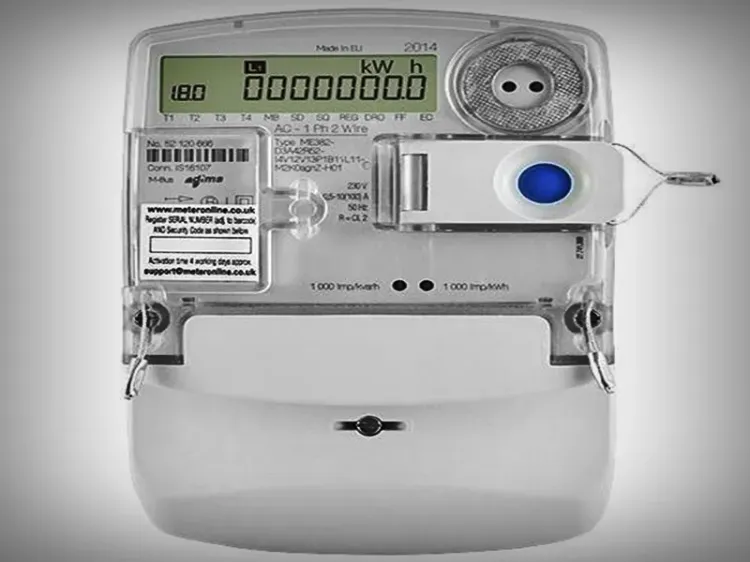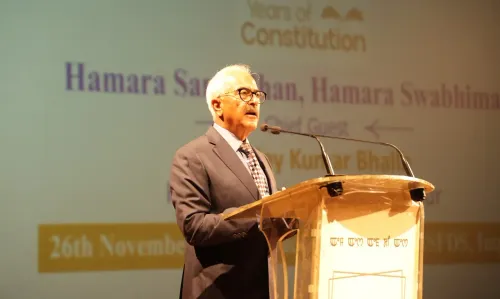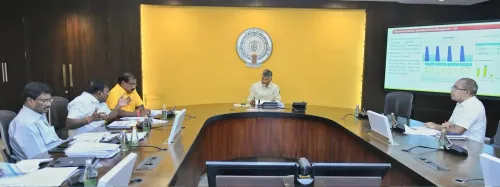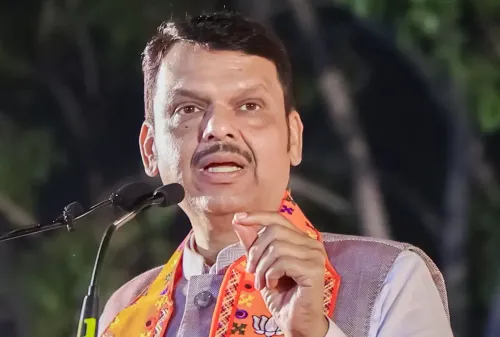How Many Smart Meters Have Been Installed in J&K?

Synopsis
Key Takeaways
- The Jammu and Kashmir government has installed 3.81 lakh smart electric meters.
- The Revamped Distribution Sector Scheme (RDSS) aims to provide uninterrupted electricity.
- Initial RDSS phase began in November 2020.
- A cumulative target of over 9.50 lakh smart meters is set for installation by 2026.
- Financial allocations include Rs 4,709 crore for loss reduction.
Srinagar, Nov 26 (NationPress) In an effort to enhance electricity availability without interruptions and minimize transmission losses, the Jammu and Kashmir government has successfully deployed 3.81 lakh smart electric meters across the Union Territory, as reported by an official.
A project progress report from the Power Development Department presented during a review meeting led by Chief Secretary Atul Dulloo revealed: "The initial phase of the Revamped Distribution Sector Scheme (RDSS) commenced in November 2020, targeting the installation of 20,000 meters in selected locales of Jammu and Srinagar, which was completed in 2022 with 1.5 lakh smart meters installed. The subsequent phases, starting in 2024, aim for over 9.50 lakh installations by 2026 and are currently underway."
The Chief Secretary emphasized improvements in operational efficiency, infrastructure strengthening, and significant power loss reduction under the RDSS.
According to the report, a total of 3,81,671 smart meters have been installed, achieving 40 percent of the overall target of 9,50,755 meters across Jammu and Kashmir.
A breakdown by division indicates that Jammu Power Development Corporation Limited (JPDCL) has installed 1,87,894 meters out of 7,62,872 sanctioned meters, while Kashmir Power Development Corporation Limited (KPDCL) has achieved 1,93,777 meters against a target of 7,27,855. This reflects consistent progress toward a transparent and consumer-friendly power distribution system throughout Jammu and Kashmir. The target includes Rs 4,709 crore for loss reduction and Rs 1,053 crore for smart metering under the RDSS.
The report also notes that the projects have been fragmented into various packages and assigned to four implementing agencies: JPDCL, KPDCL, Powergrid Energy Services Limited (PESL), and National Thermal Power Corporation (NTPC), ensuring timely completion.
Progress in loss reduction and IT/OT initiatives stands at 74 percent for JPDCL, 73 percent for KPDCL, 57 percent and 33 percent for PESL in Kashmir and Jammu respectively, and 72 percent and 31 percent for NTPC in these regions. The Aggregate Technical and Commercial (AT&C) losses have decreased from 58 percent in 2022 to approximately 32 percent now, with a target of 12 percent by 2028.
The Average Cost of Supply (ACS) and Average Revenue Realised (ARR) gap has shrunk from Rs 3.11 to Rs 1.29 per unit, while billing efficiency has improved from 56 percent to 69 percent and collection efficiency from 75 percent to 94 percent, showcasing significant advancement towards financial sustainability and operational efficiency in the energy sector.
Officials stated that the Chief Secretary instructed that all ongoing reform initiatives aimed at loss reduction be completed within the designated timeline set by the Government of India under the RDSS.
He emphasized the necessity of establishing daily and weekly benchmarks for all components of loss reduction efforts, including LT cable replacement, enhancement and replacement of the distribution system, HT line cabling, HT conductor replacements, feeder segregation, and electric pole installation. He stressed the need for better feeder-wise billing and revenue collection efficiency and called for strict actions against any officials exhibiting negligence in their duties.”









